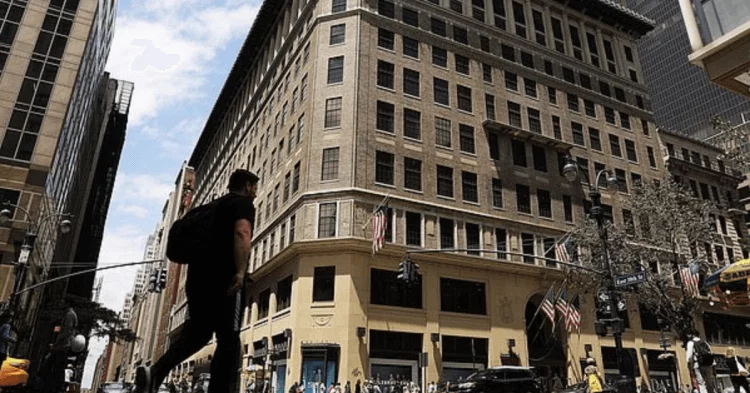“The Final Chapter: Oldest American Department Store Closes After 200 Years”
In 2020, America witnessed a series of unprecedented events, from the tragic loss of NBA legend Kobe Bryant to the global impact of the COVID-19 pandemic and the civil unrest following George Floyd’s murder. The economy, grappling with the pandemic’s effects, witnessed a shift as consumers turned to online retailers like Amazon, dealing a blow to traditional brick-and-mortar stores.

Among these traditional businesses, Lord & Taylor, America’s oldest department store chain with nearly two centuries of history, faced a grim fate. After being sold to a French company in the previous year, Lord & Taylor struggled to survive in the changing retail landscape. In response to economic pressures, the company has decided to close all 38 of its stores through a desperate liquidation sale.
This decision marked a significant shift from their previous Chapter 11 bankruptcy filing, where they had initially planned to keep fourteen locations operational. Lord & Taylor’s legacy began in 1824 when it opened its doors as a pioneering dry goods store in Manhattan, becoming the first department store in the United States. Over the years, it continued to innovate until its acquisition by Le Tote Inc., a French clothing company.

Both Lord & Taylor and Le Tote Inc. filed for bankruptcy in August 2020. Despite exploring various options, the decision was made to liquidate the remaining stores to maximize inventory value for the estate while considering the future of the company’s brands, according to Ed Kremer, Le Tote’s chief restructuring officer.
Before the pandemic, Lord & Taylor had already made significant changes by selling its iconic Fifth Avenue store, which it had owned for over a century, to WeWork. However, Amazon later acquired the building for a new Manhattan office space.
Lord & Taylor’s going-out-of-business sales currently offer everything, including fixtures, equipment, and furniture. The economic fallout from the pandemic has resulted in several historic businesses closing their doors, including Brooks Brothers, J. Crew, J.C. Penney, Neiman Marcus, Stage Stores, Ann Taylor, and Lane Bryant. Notably, Brooks Brothers, a two-century-old company that had outfitted numerous U.S. presidents, faced a similar fate. As the American economy grapples with the aftermath of this economic upheaval, it remains to be seen how businesses will recover and who will fill the vacancies left by these longstanding establishments.



